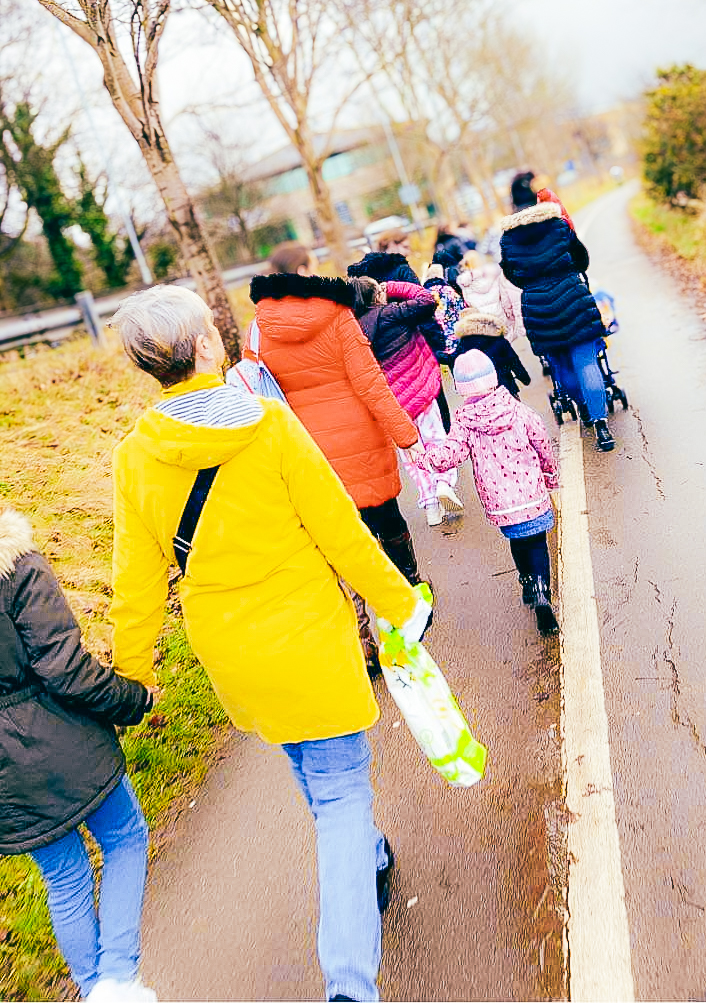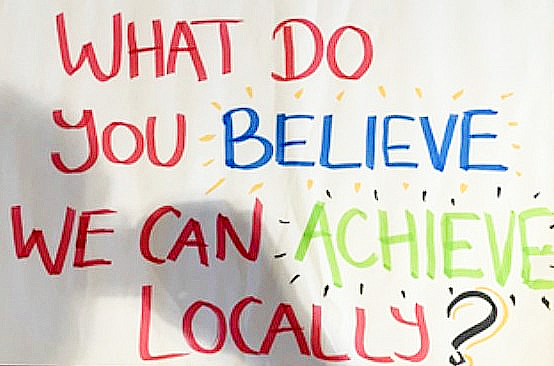Community Action Networks


We know that our communities face some tough health and equality challenges.
What if we brought everyone together to talk about what it means to be healthy and well?
What if everyone got inspired to work together to get to grips with our challenges and create the future we would love to see?
Community Action Networks (CANs) help people to
- learn practical skills that bring people together,
- move beyond just having nice conversations,
- hear from many different perspectives and voices,
- understand what we need to do to get to where we want to be, and
- build momentum to create change in society
Why do communities need CANs?
Everyone wants to see communities that are healthy, diverse, vibrant and flourishing.
As a district, we can only be successful in tackling entrenched problems such as poverty if we understand underlying inequalities and are able to work together to address them.
Our experience over the last fifty years, but particularly during and after the COVID-19 pandemic, has taught us that communities – including vulnerable and marginalised groups – can identify solutions, know the difference between knowledge and rumour, and provide insight into stigma and structural barriers.
Above all, they are well placed to work with others to devise collective responses.
Even in the face of tough challenges, adversity can bring out the best in people, including by revealing the individual and collective strengths and talents than are otherwise passed over day-to-day.
Our work in Community Action Networks builds on these strengths, bridges the gap between individuals and the community and enables people to make use of their valuable skills and abilities.
By doing so, Community Action Networks provide a framework for lifelong learning, social inclusion and active citizenship.


What happens in a CAN?


The people are residents of the local community, but also those who provide services and representation. Sometimes they are the same people: school staff, neighbourhood policing teams, local businesses, faith groups, council officers and members, GP staff and others.
Participative methods invite people into conversations about topics they really care about. These include using tools like open space, world cafe, circle practice, triads, OPERA and others. Find out more about how these are learned and used in Lancaster as part of The Art of Connecting Communities on the Love Morecambe Bay website.
Together, they get involved in activities like improving green spaces, supporting older people, improving digital inclusion, after school programmes, food clubs, literacy and numeracy, and working with the local authority to develop neighbourhood plans.
As an infrastructure organisation for community groups, we support this work by using the skills of our team:
- Mark, our Volunteer Officer helps people get together to recruit and work with volunteers to run activities that improve the neighbourhood.
- As Development Officer, Sharon identifies sources of project funding for things like room hire and equipment, and helps communities get ready to apply by supporting them to develop the right kind of structured organisations and manage their governance
- When communities lead on health and wellbeing programmes such as keep fit, self-defence and healthy eating, Community Health Officer Jenny and Health Coach Tanya get involved to help with referrals and people’s wellbeing goals.
- Jim, the LDCVS Community Learning Network Officer, provides support by commissioning the training the community needs to succeed, from safeguarding to dementia awareness to mental health first aid and much more
Ready to find out more?
We’d love to tell you more about how Community Action Networks can empower people to change neighbourhoods for the better. Contact our Chief Officer, Yak Patel, by email at [email protected] to arrange a meeting.
The Ryelands CAN
The Ryelands Estate is north of Lancaster’s city centre, on the opposite bank of the River Lune. It includes over 350 council tenancies with an average length of ten years.
Construction of the estate began in the 1930s, partially on land used by linoleum magnate Lord Ashton as the grounds of his home which is still present in the adjacent park.
Since 2018, community members have worked together with local agencies to establish the Ryelands CAN, develop a Community Plan, and start a community association. People involved include:
- Jenny Armer, Chair of the Ryelands Residents Association
- Gabi Donaghey, Secretary, Ryelands Residents Association
- Rachel Harland, Community Engagement Officer, Lancaster City Council
- Linda Pye, Headteacher, Ryelands Primary School
- Claire Neibieski, Population Health Manager (North Lancashire), Lancashire & South Cumbria Integrated Care Board
- Heather Woodhouse, Integrated Place Lead, Lancashire & South Cumbria Integrated Care Board
- Dusty Thomas, Trustee, Morecambe Bay Foodbank
- Laura Yates, Adult Social Care, Lancashire County Council
- Sarah Baines, Integrated Care Community Development Lead (Lancaster), Lancashire & South Cumbria Integrated Care Board
- Lizzie Holmes, Practice Nurse, Lancaster Medical Practice
- Yak Patel, Chief Officer, Lancaster District CVS
In Ryelands, a community have united for change. In the following video, find out more about the community in action on the Ryelands estate and why working together is so important. You’ll hear from residents, teachers, healthcare workers, the police and community leaders all coming together to achieve one goal: to create a brighter future for everyone…
Ryelands CAN Timeline
The first Ryelands CAN meeting, bringing together local residents with representatives of the police, health service, local authorities, small businesses, local schools and the Friends of Ryelands Park.
The Ryelands Residents Assocation is created as an unincorporated community organisation.
The Ryelands CAN works together to develop the first Community Plan for the estate.
CAN participants and the Ryelands Residents Association spend the year talking and listening to the community, building relationships and trust, and carrying out design work using Art of Connecting Communities tools.
Ryelands Residents Association and the CAN take the lead in supporting the neighbourhood through the pandemic by organising food parcels and digital inclusion support.
The Residents Association is sucessful in its first funding bid, receiving a This Girl Can grant from Sport England for women-only keep fit classes.
A range of adult learning courses, including digital skills, begin in the community.
Community gardening and clean-up projects, one of the priorities identified by estate residents, are well attended and enthusiastically supported.
Ryelands Community Plan updated with actions focusing on housing repairs, the physical environment, anti-social behaviour, health and wellbeing, and financial wellbeing.
Locally-administered grants from the Westminster Foundation support young people and families at risk of food insecurity.
After school activities for children and young people start to be delivered
Ryelands Residents Association begin a campaign to secure a community centre for the estate alongside a masterplan for the improvement of play areas and the multi-use games area.
Further funding from the Westminster Foundation provided another winter of food support to the neighbourhood’s families, children and young people
Play schemes and positive activities for children and young people begin, providing access to a range of social, sports and recreation activities.
